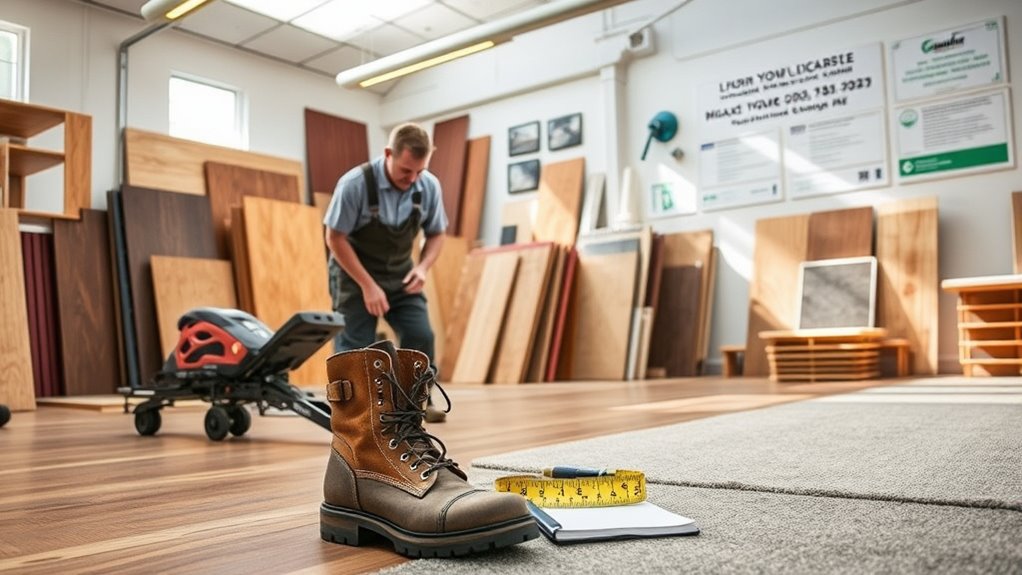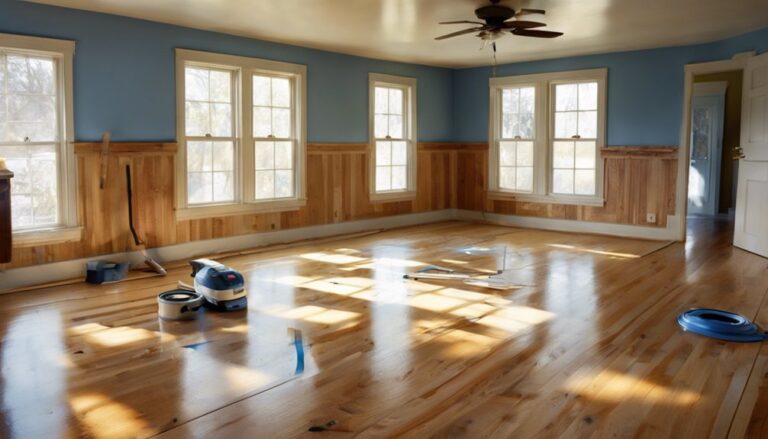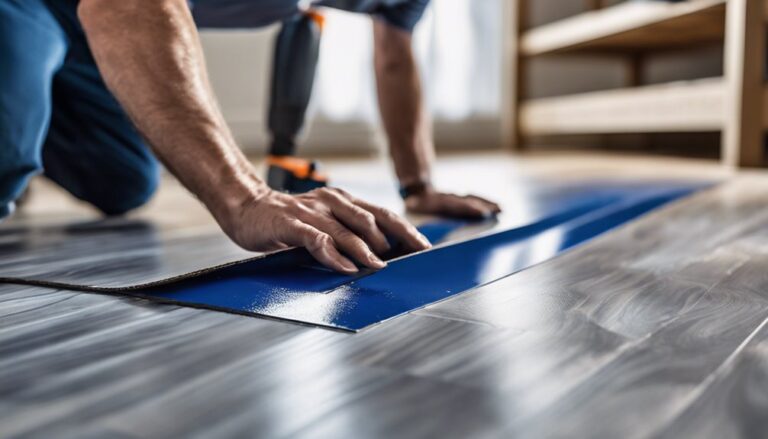To get a flooring contractor's license, you must first understand your state's unique requirements. Complete any necessary educational certifications, focusing on installation techniques and safety. Gain hands-on experience through apprenticeships or on-the-job training. Prepare for the licensing exam by gathering study materials and practicing. Finally, submit your application with fees and keep track of renewal dates. This process guarantees you meet all regulations while operating successfully in the industry, and there's more to uncover about each step.
Understanding Licensing Requirements by State

When you're considering becoming a flooring contractor, understanding the licensing requirements in your state is vital. Each state has its own regulations that dictate what you need to do to legally operate. You'll often find that you must obtain a specific license, which could include a general contractor's license or a specialized flooring contractor's license. Additionally, be prepared for licensing fees, which can vary considerably from one state to another. It's important to research your state's requirements thoroughly, as non-compliance might lead to penalties or legal issues. Familiarizing yourself with these state regulations not only helps you avoid pitfalls but also empowers you to build a successful flooring business. Start your journey informed and ready for the challenges ahead.
Educational Prerequisites for Flooring Contractors
To effectively operate as a flooring contractor, meeting specific educational prerequisites is important. Many states require you to obtain flooring certifications, which can greatly enhance your credibility in the industry. These certifications often involve completing coursework that covers installation techniques, materials, and safety protocols. Attending a trade school can be a wise step, as these institutions provide structured training and hands-on experience, setting you up for success. Trade school programs often culminate in valuable certifications that demonstrate your expertise to potential clients and employers. Additionally, staying updated on new flooring technologies and trends through continuing education is essential for maintaining your competitive edge in this ever-evolving field. Aim for a solid educational foundation to guarantee your long-term success as a flooring contractor.
Gaining Hands-On Experience in the Flooring Industry

Although formal education lays the groundwork, gaining hands-on experience in the flooring industry is essential for developing practical skills and understanding real-world challenges. Engaging in apprenticeship programs or seeking on-the-job training can greatly enhance your expertise. These opportunities allow you to work alongside seasoned professionals, learn critical techniques, and navigate various flooring materials.
| Apprenticeship Programs | On-the-Job Training |
|---|---|
| Structured curriculum | Real-world scenarios |
| Mentorship opportunities | Immediate feedback |
| Industry certifications | Skill application |
| Networking possibilities | Diverse projects |
| Paid positions | Flexible learning |
Preparing for the Licensing Examination
After gaining valuable hands-on experience in the flooring industry, the next step involves preparing for the licensing examination. Start by gathering essential study materials, such as textbooks, online courses, and practice exams tailored to flooring regulations and installation techniques. Familiarize yourself with the exam format and content to identify key areas to focus on. Develop effective exam strategies, like creating a study schedule, breaking down complex topics, and taking regular practice tests to track your progress. Joining a study group can also enhance your understanding through discussion and collaboration. Remember, mastering the material not only prepares you for the exam but also equips you with the knowledge to excel in your flooring career.
Completing the Application Process and Maintaining Your License

Once you've successfully prepared for the licensing examination, the next essential step is completing the application process for your flooring contractor's license. You'll need to submit an application form along with the required application fees. Make certain you keep a record of important dates, especially for your renewal process, to maintain your license without interruptions.
| Step | Description | Deadline |
|---|---|---|
| Submit Application | Fill out and submit your application | Varies by state |
| Pay Fees | Guarantee all application fees are paid | At submission |
| Receive License | Wait for approval from licensing board | 4-6 weeks |
| Renewal Process | Stay aware of renewal requirements | Every 2 years |
Following these steps guarantees you can operate freely in your flooring contracting business.
Frequently Asked Questions
How Long Does It Take to Obtain a Flooring Contractor's License?
The time it takes to obtain a flooring contractor's license can vary widely depending on your location and the specific licensing process. Typically, you'll need to take into account the application timeline, which may include gathering necessary documents, passing exams, and possibly completing a background check. On average, you might expect the process to take anywhere from a few weeks to several months. Staying organized can help you navigate this efficiently and achieve your goal sooner.
Are There Age Requirements to Apply for a Flooring Contractor's License?
Yes, there are age restrictions when applying for a flooring contractor's license. Most states require you to be at least 18 years old to start the licensing process. This age requirement guarantees that you have the legal capacity to enter contracts and take on responsibilities associated with contracting work. Always check your local regulations, as specific requirements may vary, but generally, being of legal age is essential for proceeding with your application.
Can I Work Without a License During the Application Process?
Imagine racing toward a finish line, but without the proper gear. While you're waiting for your application to process, working without a license is like running that race illegally—it could lead to penalties. The application timeline varies, so it's essential to know your state's regulations. Engaging in unlicensed work can jeopardize your future opportunities, so it's best to wait until you're fully licensed before diving into any projects. Stay on the right track!
What Should I Do if I Fail the Licensing Examination?
If you fail the licensing examination, don't worry; it's not the end. You should familiarize yourself with the exam retake process, which varies by state. Utilize study resources, like practice exams and online courses, to strengthen your knowledge. Identify the areas where you struggled, and focus on those topics. After you feel more prepared, schedule your retake and approach it with confidence. Persistence is key to achieving your licensing goals.
Are There Continuing Education Requirements for Maintaining My Flooring Contractor's License?
Yes, there are continuing education requirements for maintaining your flooring contractor's license. To guarantee your skills stay current and meet industry standards, you'll need to complete a certain number of hours in relevant courses before license renewal. These courses often cover new techniques, regulations, and safety practices. Staying informed not only helps you retain your license but also enhances your credibility and expertise in the flooring industry, giving you more freedom in your career.




